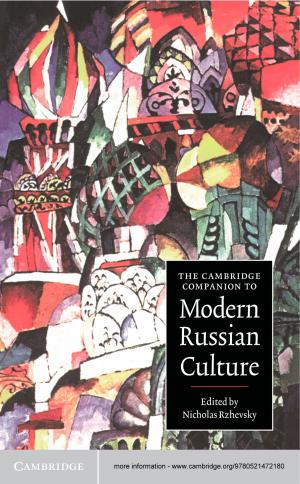Narrative and Identity in the Ancient Greek Novel
Returning Romance
Nonfiction, History, Ancient History, Fiction & Literature, Literary Theory & Criticism| Author: | Tim Whitmarsh | ISBN: | 9781139036436 |
| Publisher: | Cambridge University Press | Publication: | April 7, 2011 |
| Imprint: | Cambridge University Press | Language: | English |
| Author: | Tim Whitmarsh |
| ISBN: | 9781139036436 |
| Publisher: | Cambridge University Press |
| Publication: | April 7, 2011 |
| Imprint: | Cambridge University Press |
| Language: | English |
The Greek romance was for the Roman period what epic was for the Archaic period or drama for the Classical: the central literary vehicle for articulating ideas about the relationship between self and community. This book offers a reading of the romance both as a distinctive narrative form (using a range of narrative theories) and as a paradigmatic expression of identity (social, sexual and cultural). At the same time it emphasises the elasticity of romance narrative and its ability to accommodate both conservative and transformative models of identity. This elasticity manifests itself partly in the variation in practice between different romancers, some of whom are traditionally Hellenocentric while others are more challenging. Ultimately, however, it is argued that it reflects a tension in all romance narrative, which characteristically balances centrifugal against centripetal dynamics. This book will interest classicists, historians of the novel and students of narrative theory.
The Greek romance was for the Roman period what epic was for the Archaic period or drama for the Classical: the central literary vehicle for articulating ideas about the relationship between self and community. This book offers a reading of the romance both as a distinctive narrative form (using a range of narrative theories) and as a paradigmatic expression of identity (social, sexual and cultural). At the same time it emphasises the elasticity of romance narrative and its ability to accommodate both conservative and transformative models of identity. This elasticity manifests itself partly in the variation in practice between different romancers, some of whom are traditionally Hellenocentric while others are more challenging. Ultimately, however, it is argued that it reflects a tension in all romance narrative, which characteristically balances centrifugal against centripetal dynamics. This book will interest classicists, historians of the novel and students of narrative theory.















